Are you looking to foster a fruitful partnership with your local government? Collaborating with local authorities can lead to impactful community initiatives and sustainable development for everyone involved. In this article, we'll explore how to craft a compelling letter that outlines the benefits and potential of your partnership proposal. So, let's dive in and discover the essential elements that can make your proposal stand out!
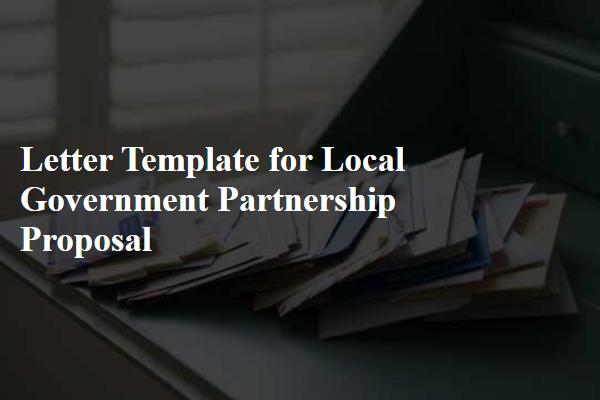
Clear Objective and Vision
Establishing a partnership between local governments can enhance community development, economic growth, and social welfare. Objectives should include improving infrastructure, such as roads and public transportation systems, fostering collaboration in public health initiatives, promoting sustainable practices, and addressing housing needs in urban areas. A shared vision must focus on creating resilient communities capable of adapting to climate change, stimulating local economies via small business support, and enhancing education systems to prepare future generations. Local government engagement can streamline resource allocation, encourage citizen participation, and ensure equitable access to services, creating a holistic approach to governance that meets the diverse needs of the population.
Mutual Benefits and Impact
A proposal for a local government partnership can create significant mutual benefits and impactful outcomes for the community. Collaborative initiatives can leverage public resources and local expertise to address pressing issues such as environmental sustainability, socioeconomic development, and public health. For example, joint community development programs may incorporate sustainable practices to enhance local infrastructure, reduce carbon footprints, and improve resident quality of life. Increased engagement can also lead to the pooling of funding sources, including government grants and private investments, allowing for larger-scale projects. Outcomes may include heightened community awareness, improved access to public services, and a sense of shared responsibility among citizens, ultimately fostering a healthier, more vibrant community.
Key Stakeholders and Roles
Local government partnerships often involve several key stakeholders, each with distinct roles that contribute to the overall success of the initiative. For instance, municipal representatives act as liaisons between the government and the community, ensuring resident needs are met while implementing policies. Local business owners, crucial to economic development, offer insight into community needs and potential job opportunities. Non-profit organizations facilitate outreach and support services, addressing social issues like housing and health care. Educational institutions participate by providing research and resources, fostering workforce development. Finally, community members, as the end-users of the services, provide feedback and help shape the partnership's direction, ensuring that the initiative remains aligned with public interests and needs. This collaborative framework promotes transparency, accountability, and the effective allocation of resources in local governance projects.
Resource Allocation and Funding
Local governments play a crucial role in resource allocation and funding initiatives that benefit communities. Effective collaboration between local authorities and organizations ensures optimal utilization of financial resources. For example, a partnership can focus on infrastructure projects, such as constructing parks or upgrading public transportation systems, which serve populations of over 50,000 residents. Funding sources may include federal grants, state allocations, and private donations, all aimed at enhancing community services. Successful examples include the 2022 partnership between the city of Springfield and nonprofit organizations, which secured over $3 million for educational programs in underserved neighborhoods, leading to tangible improvements in access to resources for local families. Establishing comprehensive agreements that outline responsibilities and expectations is vital for achieving sustainable outcomes and fostering long-term community development.
Timeline and Implementation Plan
Creating a timeline and implementation plan for a local government partnership proposal involves strategic planning and clear milestones to ensure successful collaboration. A typical timeline might span six months, starting with an initial partnership meeting in Month 1 to define goals and objectives. By Month 2, stakeholders from both the local government agency (such as the City Council) and community organizations (like non-profits) would identify key resources and assign responsibilities. In Month 3, a joint action plan would be developed, emphasizing community engagement events in public spaces (such as parks or community centers) scheduled for Month 4. By Month 5, evaluations of the partnership's progress would be conducted, with feedback from the community gathered via surveys. In Month 6, a final review meeting would take place to assess outcomes and plan for future actions. This structured timeline fosters transparency and accountability among all parties involved, paving the way for sustained community impact.
Letter Template For Local Government Partnership Proposal Samples
Letter template of collaboration proposal for local government initiative
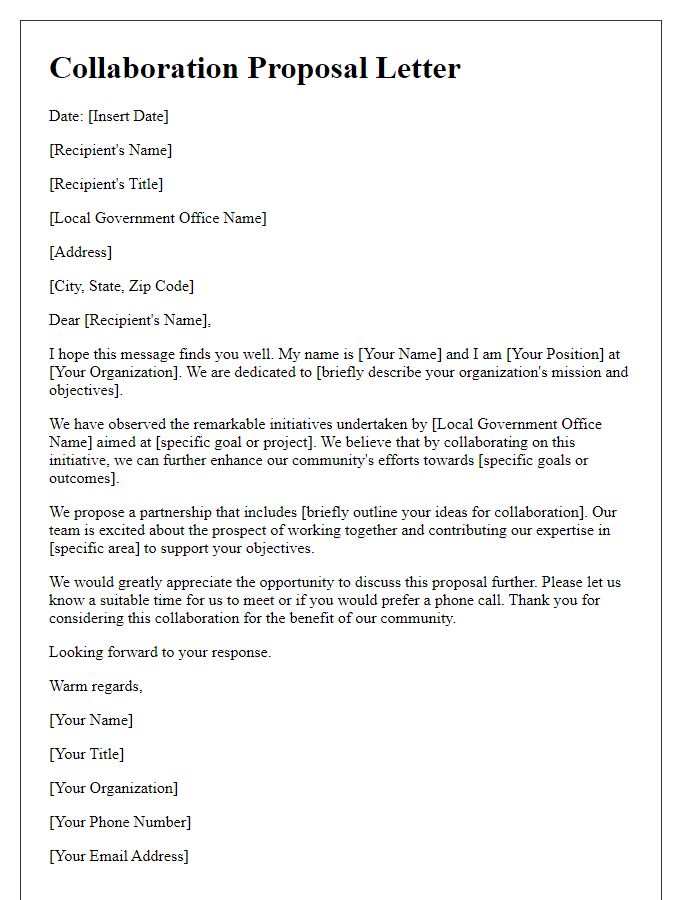
Letter template of partnership request for community development project
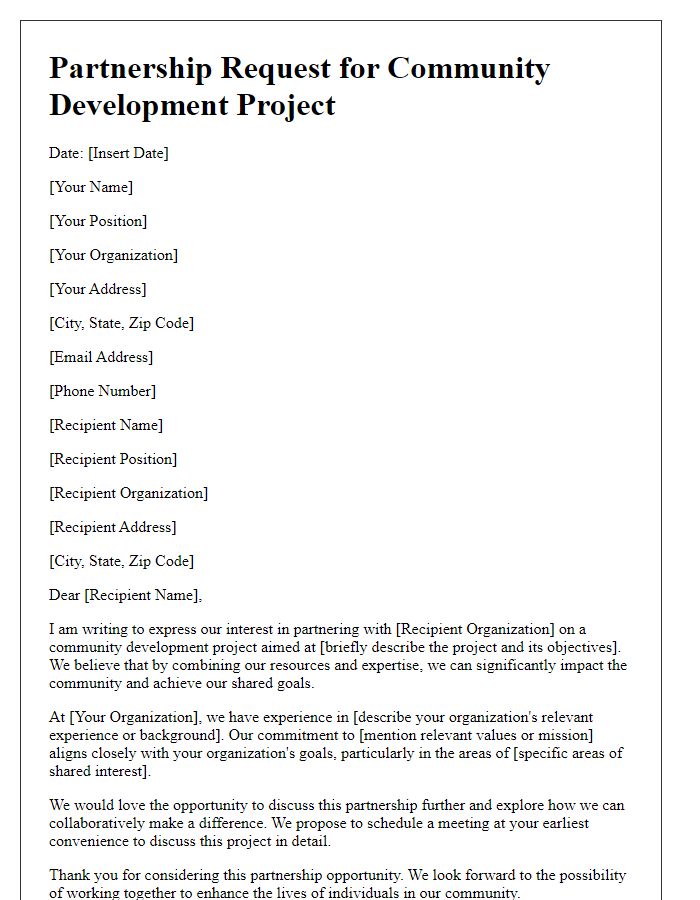
Letter template of proposal for public service collaboration with local authorities
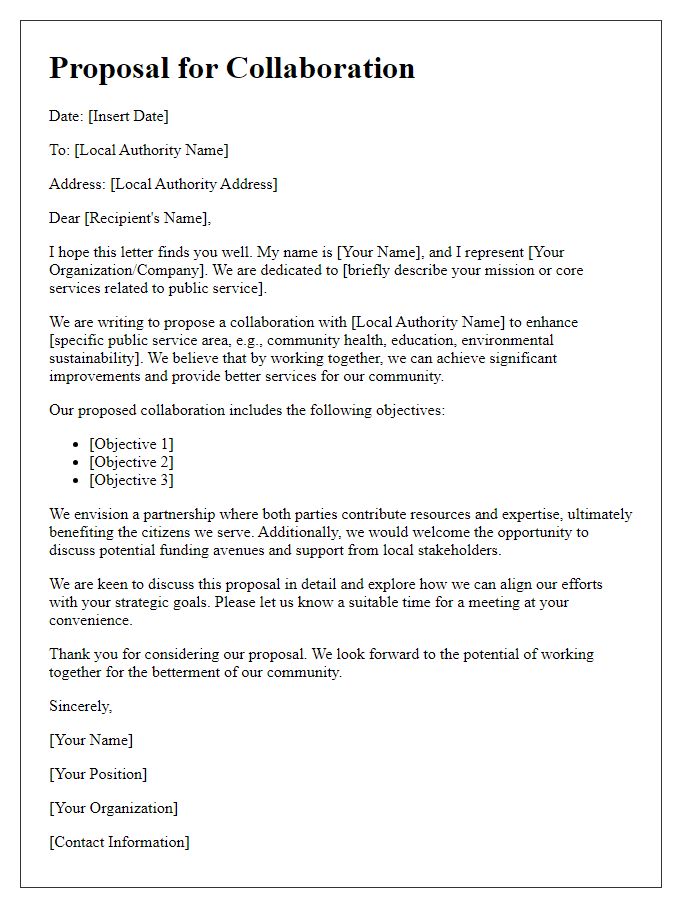
Letter template of strategic partnership outline for regional improvement
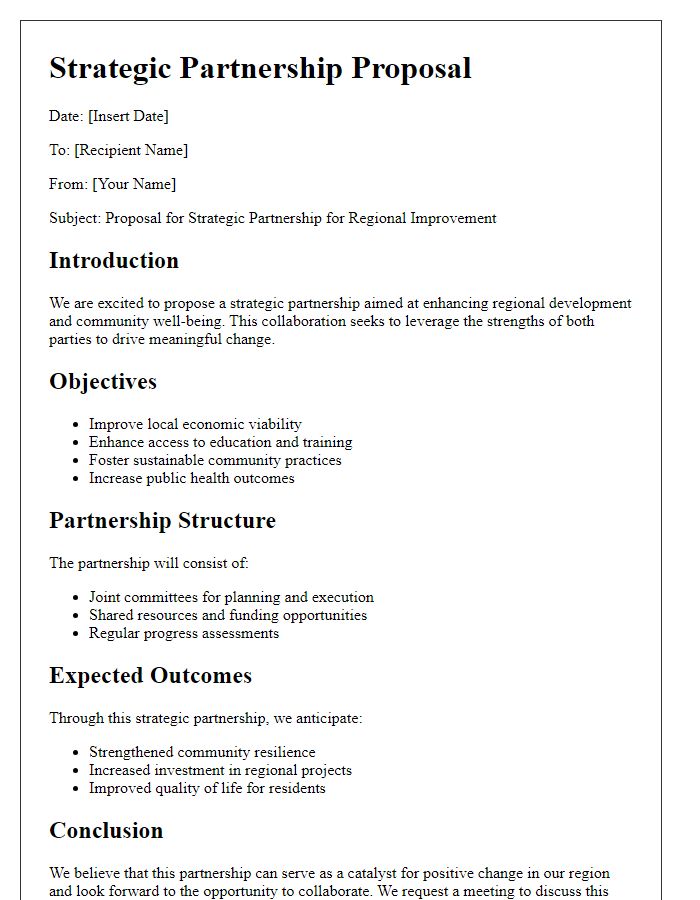
Letter template of proposal for joint efforts in local sustainability initiatives
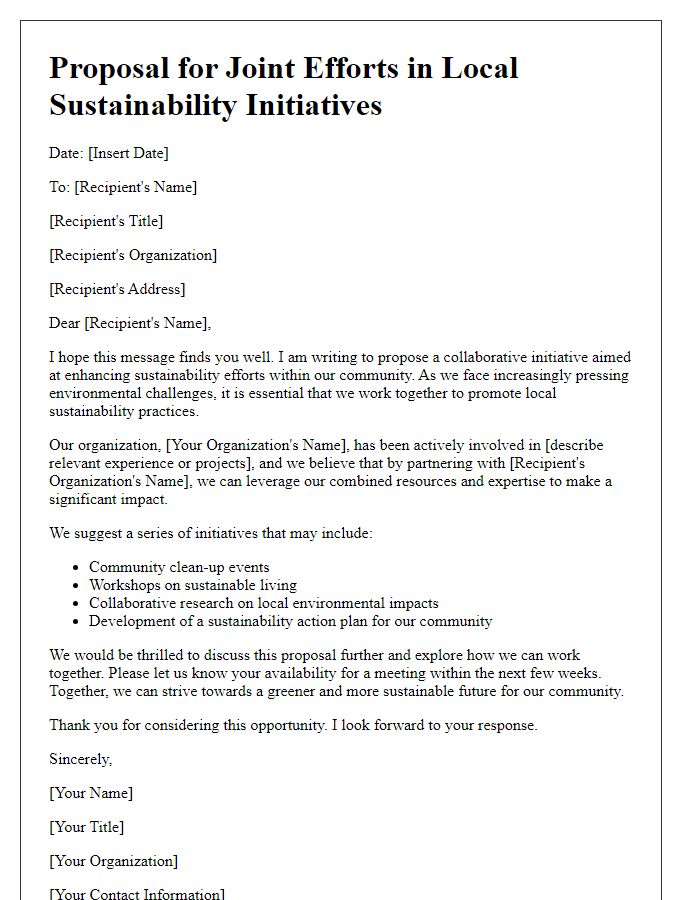

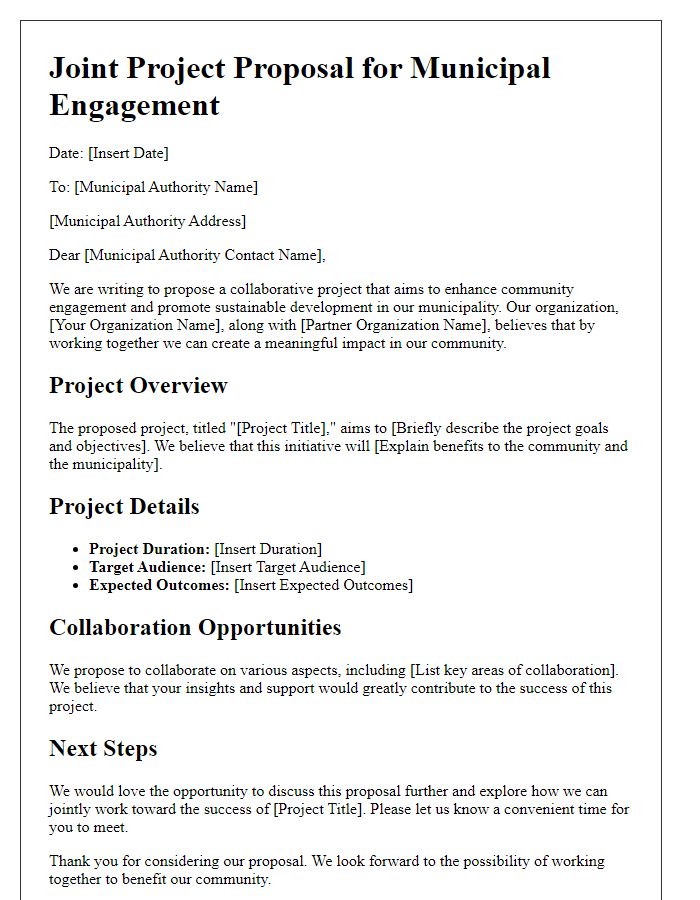
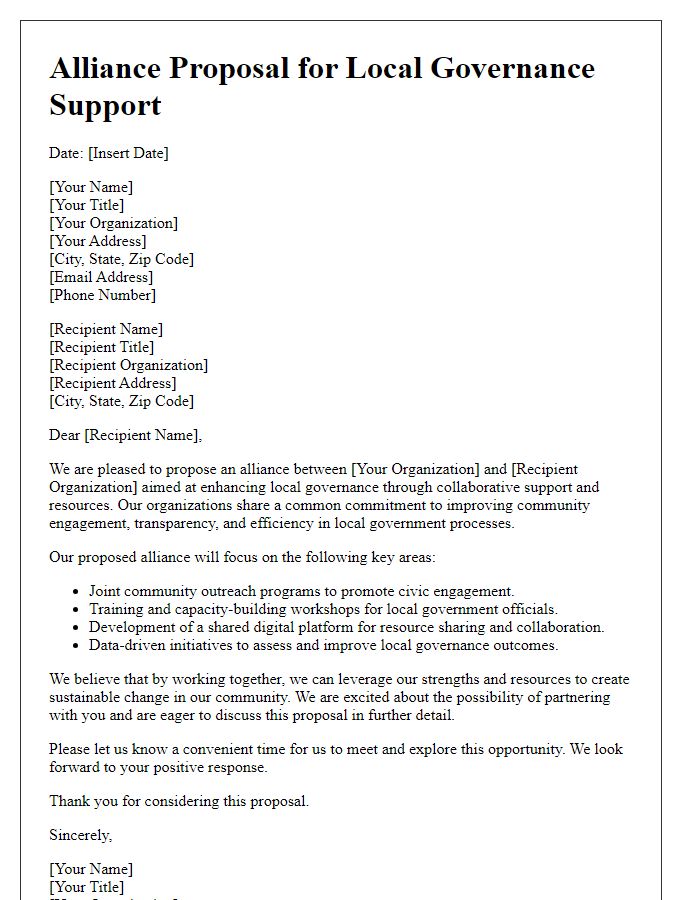
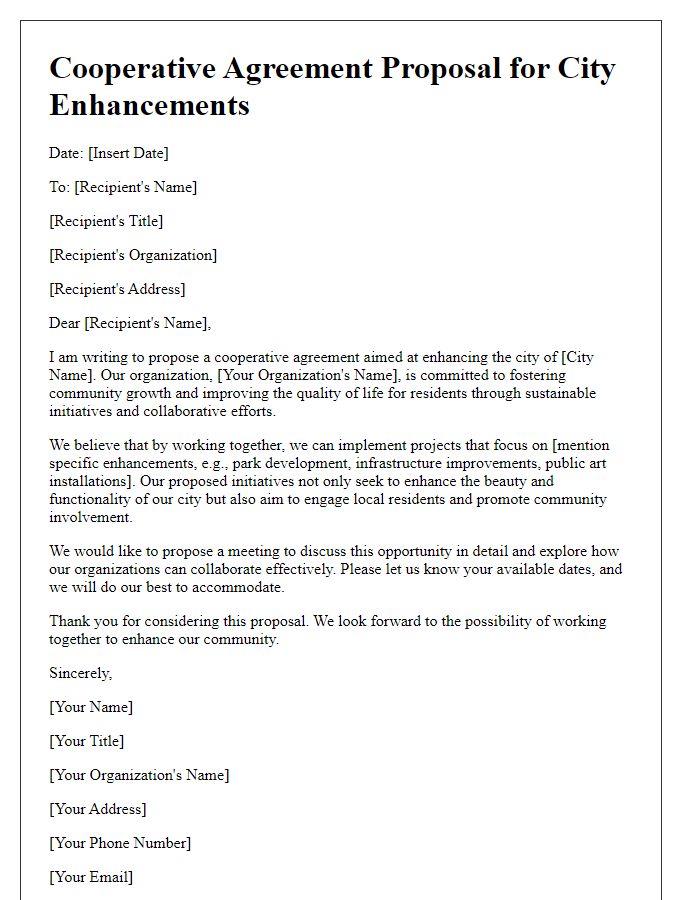
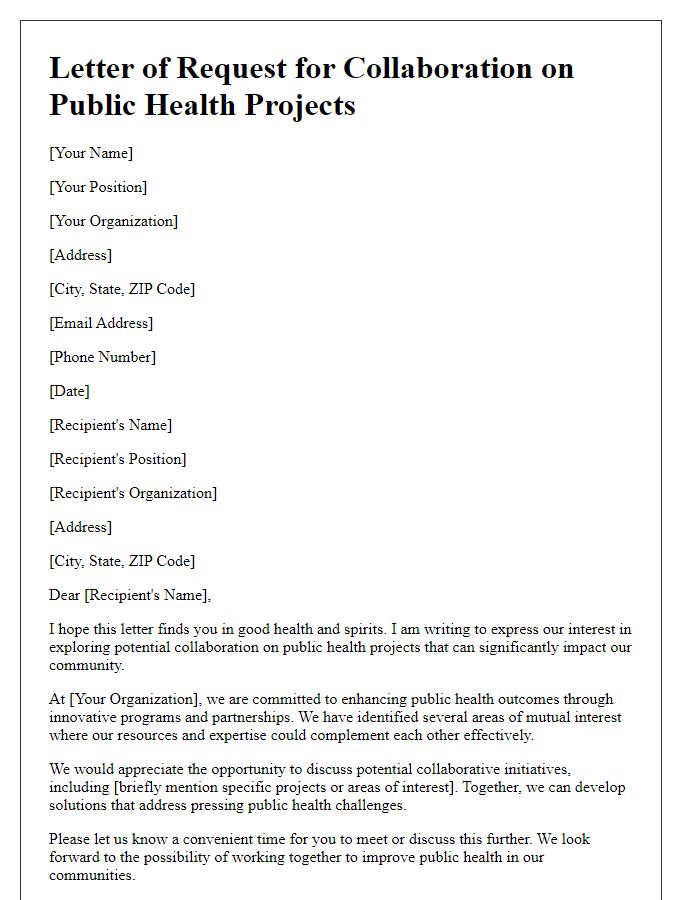
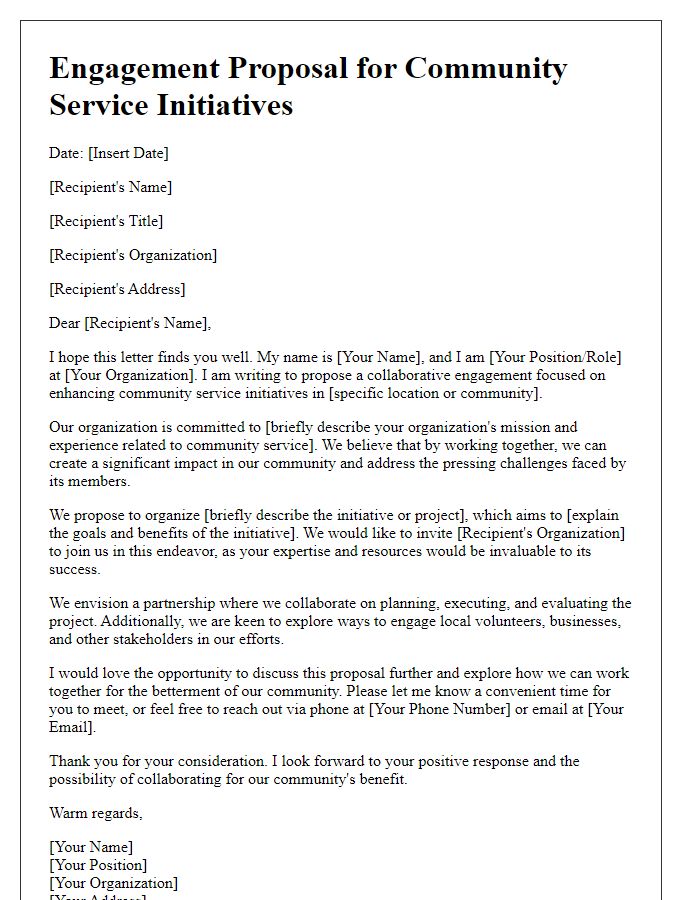

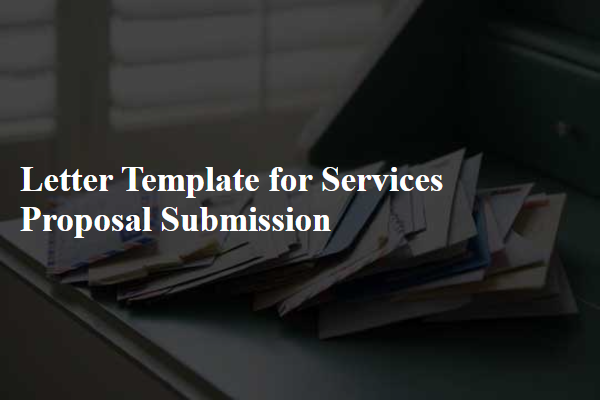
Comments